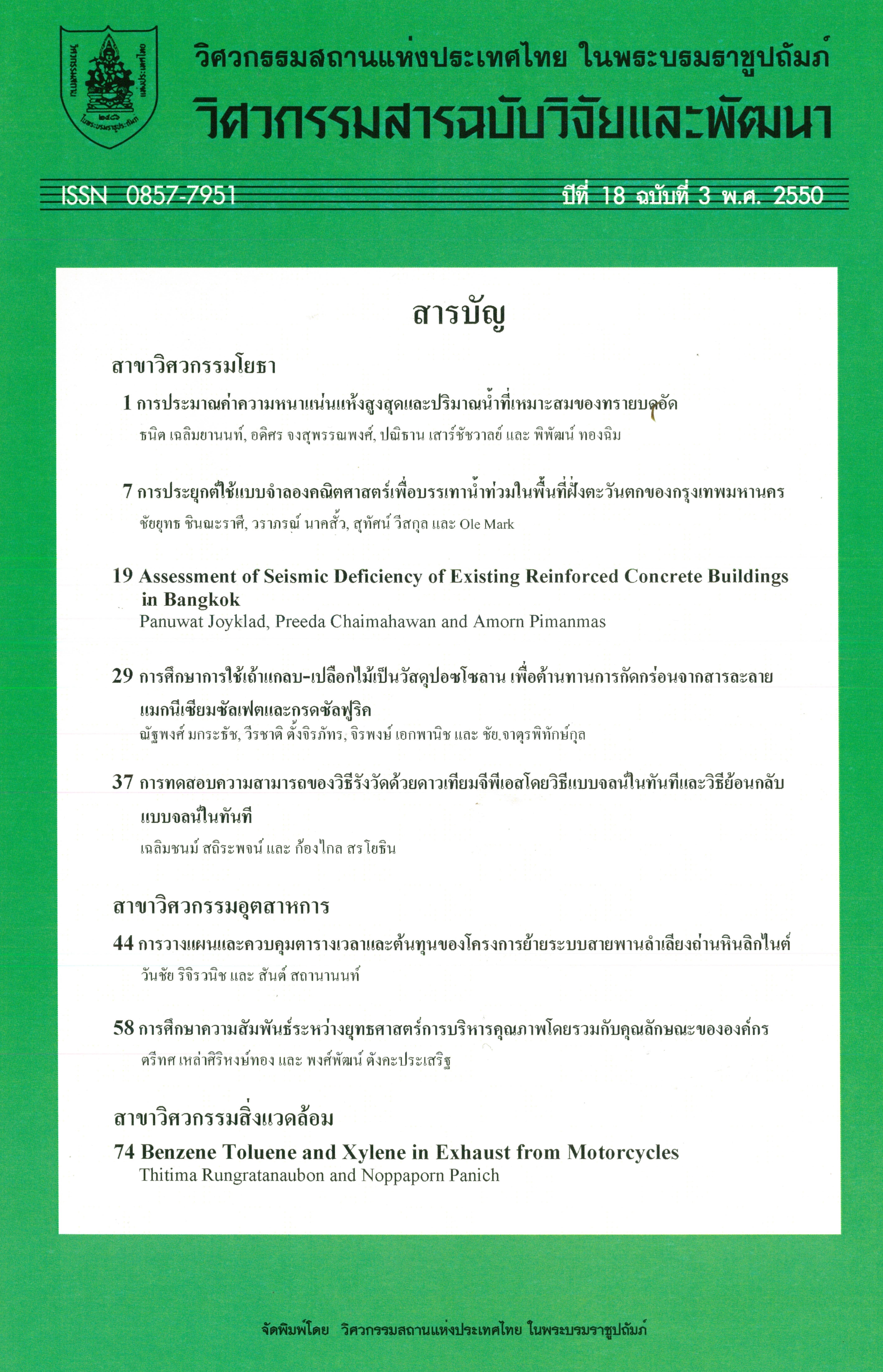การศึกษาความสัมพันธ์ระหว่างยุทธศาสตร์การบริหารคุณภาพโดยรวมกับคุณลักษณะขององค์กร
Main Article Content
Abstract
The purpose of this study is to examine degree of the relationship between total quality management (TQM) strategies and organizational characteristic (size of organization and TQM program implementation). Seven quality management practices including leadership, strategic planning, customer focus, information and analysis, people management, process management, and supplier management were used to explain TQM implementation. Manufacturing companies in Thailand were used as sources of the empirical study. Data obtained from 231 returned questionnaires (39.90% response rate) were analyzed by using inferential statistical analysis such as reliability analysis, confirmatory factor analysis, independent t-test analysis, and co-relation analysis. The results indicated that firm size have not influences the degree of TQM implementation significantly (p < 0.05). Firms that implemented official TQM implementation program exhibited the higher degree of TQM practices implementation leading to increase product and process innovation. It is important to note that manufacturing companies should focus on product innovation as order-winner to meet customer needs and expectations. Finally, the result of co-relation analysis shows that TQM strategies should be considered as a set of practices and implemented simultaneously in order to enhance the organizational performance.
Article Details
The published articles are copyright of the Engineering Journal of Research and Development, The Engineering Institute of Thailand Under H.M. The King's Patronage (EIT).


